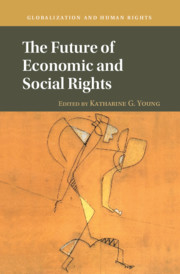Book contents
- The Future of Economic and Social Rights
- Globalization and Human Rights
- The Future of Economic and Social Rights
- Copyright page
- Contents
- Figures
- Tables
- Contributors
- Abbreviations
- Foreword
- Acknowledgements
- 1 Introduction
- Part I Adjudication and Rights
- Part II Adjudication and Rights in Context
- 5 The Right to Education in the American State Courts
- 6 Legislating Human Rights
- Part III Adjudication and Rights
- Part IV Economic and Social Rights in Retrenchment
- Part V Economic and Social Rights in Development
- Part VI Rights and Accountability
- Books in the Series
6 - Legislating Human Rights
Experience of the Right to Education Act in India
from Part II - Adjudication and Rights in Context
Published online by Cambridge University Press: 04 April 2019
- The Future of Economic and Social Rights
- Globalization and Human Rights
- The Future of Economic and Social Rights
- Copyright page
- Contents
- Figures
- Tables
- Contributors
- Abbreviations
- Foreword
- Acknowledgements
- 1 Introduction
- Part I Adjudication and Rights
- Part II Adjudication and Rights in Context
- 5 The Right to Education in the American State Courts
- 6 Legislating Human Rights
- Part III Adjudication and Rights
- Part IV Economic and Social Rights in Retrenchment
- Part V Economic and Social Rights in Development
- Part VI Rights and Accountability
- Books in the Series
Summary
- Type
- Chapter
- Information
- The Future of Economic and Social Rights , pp. 158 - 184Publisher: Cambridge University PressPrint publication year: 2019
- 5
- Cited by



